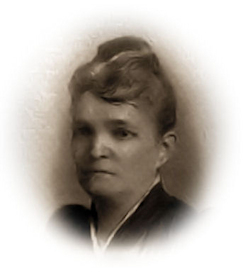Sunday, July 13, 1862. (Under a tree on the east bank of the Mississippi.)—Late on Saturday evening we reached a plantation whose owner invited us to spend the night at his house. What a delightful thing is courtesy! The first tone of our host’s welcome indicated the true gentleman. We never leave the oars with the watchman; Max takes those, Annie and I each take a band-box, H. takes my carpet-sack, and Reeney brings up the rear with Annie’s. It is a funny procession. Mr. B.’s family were absent, and as we sat on the gallery talking it needed only a few minutes to show this was a “Union man.” His home was elegant and tasteful, but even here there was neither tea nor coffee.
About eleven we stopped here in this shady place. While eating lunch the negroes again came imploring for tobacco. Soon an invitation came from the house for us to come and rest. We gratefully accepted, but found the idea of rest for warm, tired travelers was for us to sit in the parlor on stiff chairs while the whole family trooped in, cool and clean in fresh toilets, to stare and question. We soon returned to the trees; however, they kindly offered corn-meal pound-cake and beer, which were excellent. If we reach Fetler’s Landing to-night, the Mississippi-River part of the journey is concluded. Eight gunboats and one transport have passed us. Getting out of their way has been troublesome. Our gentlemen’s hands are badly blistered.
Note: To protect Mrs. Miller’s job as a teacher in post-civil war New Orleans, her diary was published anonymously, edited by G. W. Cable, names were changed and initials were generally used instead of full names—and even the initials differed from the real person’s initials. (Read Dora Richards Miller’s biographical sketch.)
